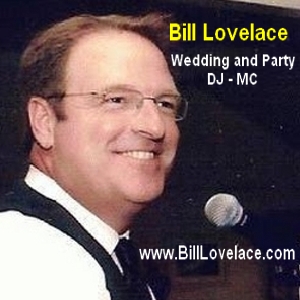 |  FULL SERVICE Quality Plumbing |
 |  FULL SERVICE Quality Plumbing |
| The text below was updated to reflect the fact that the bill refers to marine fuel, not just bunker fuel. Bunker fuel is a type of marine fuel but not a generic term for marine fuel. Other updates are made as indicated below.
(Feb. 27, 2012, updated text) -- State Senator Alan Lowenthal (D., Long Beach-Paramount) has introduced a bill (SB 1243) that would extend indefinitely a maritime industry-sought tax break that he Senator Lowenthal's bill lists Assemblywoman Bonnie Lowenthal (D., LB) as its SB 1243 (as introduced, click here) would continue to exempt from state sales/use tax marine fuel bought in CA but consumed outside CA waters. The state legislative counsel's digest notes that while another provision of state law requires Sacramento to reimburse counties and cities for revenue losses caused by other sales/use tax exemptions, SB 1243 includes no appropriation to reimburse counties or cities for sales/use tax revenues lost by them under its terms. UPDATE: Sen. Lowenthal's press secretary, Keith Higginbotham, says the language is boilerplate that is included on any bill dealing with sales tax and in the case of this bill, it means that counties and locals will have to follow the exemption also. [end update] The proposed legislation comes as state lawmakers face another budget deficit (spending exceeding revenue) and Governor Jerry Brown has asked voters in November to increase CA's sales tax payable on consumer transactions they routinely make. In a release announcing his bill, Senator Lowenthal said, "No other maritime port in the U.S. currently charges sales tax on marine fuel. This is about protecting California jobs and keeping California ports competitive." The bill covers all marine fuels, including bunker fuel (which is a type of marine fuel, not explicitly mentioned in the bill). Sen. Lowenthal's office says the vast majority of marine fuel purchased in California by cargo vessels isn't bunker fuel but is "ultra low sulfur diesel," which press secretary Keith Higginbotham says is the same used by trucks and cars from a gas station pump but with a red dye added. [Mr. Higginbotham adds that the Legislative Counsel's digest is incorrect in its reference to bunker fuel.] LBReport.com has separately learned that Sen. Lowenthal's bill is co-sponsored by [i.e. is advanced at the request of] the Pacific Merchant Shipping Association (PMSA) and the Inland Boatmen’s Union (IBU). PMSA President John McLaurin told LBReport.com that PMSA, the IBU and Senator Lowenthal were reviewing/discussing separately a bill [regarding bunker fuel] because the current exemption is set to expire [in 2014] and a legislative deadline was approaching [Feb. 23] in which to introduce bills for the current session. UPDATE: Sen. Lowenthal's press secretary says "the PMSA and IBU are NOT sponsors of the bill. They certainly support the bill and may even think they are sponsors, but the Senator decides who the sponsors will be and he never asked them." For the record, LBReport.com based our statement on a Feb. 25 email to us (in reply to our inquiry about SB 1243) by PMSA President John McLaurin: "PMSA is a co-sponsor with the Inland Boatmen’s Union (IBU). PMSA, the IBU and Senator Lowenthal were all reviewing/discussing separately about a bill as the exemption is set to expire and we were coming up on the deadline to introduce legislation for this session..." [end update] In 2003, Senators Betty Karnette and Don Perata (with then-Assemblyman Alan Lowenthal as a co-author) used Sacramento's "gut and amend" procedure (bypassing normally required Committee hearings, scrutiny and votes by removing the text of one bill and replacing it with unrelated new text) to enact what is CA's current law exempting bunker fuel from the full amount of CA's sales/use tax. [We refer to this in remainder of this story simply as sales tax]. The 2003 measure, backed by multiple industry interests [extended list below] reinstated a previous sales tax exemption that Sacramento had allowed to expire. The "gut and amend" speed of the 2003 Karnette-Perata-Lowenthal bill didn't include an analysis by the state Board of Equalization on the costs of the sales tax exemption on state and local taxpayers. However, a BOE estimate of the costs of a similar measure (2001) were in the range of $22-$36 million ($13.5-$21.5 million cost to the state plus $8.9-$14 million in local revenue losses). A legislative analysis for the Senate Rules Committee analysis on the then-pending 2003 bill said: The fiscal effect of the bunker tax exemption has been the subject of great controversy. At issue is the degree to which the imposition of sales tax on bunker fuel causes water common carriers to fuel out-of-state rather than in California. An analysis of this bill was not available from the State Board of Equalization (BOE) at the time this committee analysis was prepared. However, in an analysis of a similar bill, SB 145 (Perata), from the 2001-02 Legislative Session, BOE estimated that repealing the sunset date on the bunker fuel exemption would result in a total state and local sales and use tax loss of between $22 and $36 million (between $13.5 and $21.5 million General Fund losses and between $8.9 and $14 million local revenue losses). The range in BOE's estimates reflects uncertainty over the degree to which the sales tax causes water common carriers to fuel out-of-state. Industry supporters of the 2003 tax break argued that bunker fuel sales dropped harply when the previous sales tax exemption was allowed to expire...and said if Sacramento didn't reinstate the exemption, shippers would buy their bunker fuel outside CA (while continuing to burn it here) with the net effect costing state and local jobs and revenue. The 2003 sales tax exemption flew through the state legislature. Below is a list of the bill's supporters (source: Ass'y Rev & Tax Committee legislative analysis) followed by the recorded vote on SB 808 (2003): SUPPORT: American Marine Corporation
The "gut and amend" procedure left little time for opposition (if any) to surface; there was no listed opposition. The votes on passage were: SENATE FLOOR: VOTES - ROLL CALL MEASURE: SB 808 AUTHOR: Karnette TOPIC: Sales and use taxes: exemptions: bunker fuel DATE: 09/12/2003 LOCATION: SEN. FLOOR MOTION: Unfinished Business SB808 Karnette (AYES 40. NOES 0.) (PASS) AYES: Aanestad Ackerman Alarcon Alpert Ashburn Battin Bowen Brulte Burton Cedillo Chesbro Denham Ducheny Dunn Escutia Figueroa Florez Hollingsworth Johnson Karnette Knight Kuehl Machado Margett McClintock McPherson Morrow Murray Oller Ortiz Perata Poochigian Romero Scott Sher Soto Speier Torlakson Vasconcellos Vincent NOES: [None] ****************** ASSEMBLY FLOOR VOTES - ROLL CALL MEASURE: SB 808 AUTHOR: Karnette TOPIC: Sales and use taxes: exemptions: bunker fue DATE: 09/11/2003 LOCATION: ASM. FLOOR MOTION: SB 808 Karnette Senate Third Reading By Lowenthal (AYES 76. NOES 1.) (PASS) AYES **** Aghazarian Bates Benoit Berg Bermudez Bogh Calderon Campbell Chan Chavez Chu Cogdill Cohn Corbett Correa Cox Daucher Diaz Dutra Dutton Dymally Frommer Garcia Goldberg Hancock Harman Haynes Jerome Horton Shirley Horton Houston Jackson Keene Kehoe Koretz La Malfa La Suer Laird Leno Leslie Levine Lieber Longville Lowenthal Maddox Maldonado Matthews Maze McCarthy Montanez Mullin Nakanishi Nakano Nation Negrete McLeod Nunez Oropeza Pacheco Parra Pavley Plescia Reyes Richman Ridley-Thomas Runner Salinas Samuelian Simitian Spitzer Steinberg Strickland Vargas Wiggins Wolk Wyland Yee Wesson NOES **** Canciamilla ABSENT, ABSTAINING, OR NOT VOTING ********************************* Firebaugh Liu Mountjoy In October 2003 (shortly before he was recalled on other grounds), Gov. Gray Davis signed into law the Karnette-Perata-Lowenthal bunker fuel partial sales tax exemption. It has remained CA law despite annual state government budget deficits and budget cuts. In Oct. 2005, CA Air Resources Board staff proposed rules to curtail the use of bunker fuel as a threat to residents' health...and LBReport.com began following the story in detail:
Previous LAO Findings on the ExemptionThe LAO released a statutorily required study on bunker fuel pursuant to Chapter 615, Statutes of 1997 (AB 366, Havice), entitled Sales Taxation of Bunker Fuel (January 2001). Our major findings were:
Updated FindingsThe fundamentals of the bunker fuel industry and the effects of a partial SUT exemption have not changed since our last report. In our review below, we find that:
Analysis of the Bunker Fuel ExemptionHow Should Bunker Fuel Be Treated From a Tax Policy Perspective?Underlying Rationale for the SUT. The traditional public finance rationale for the SUT is that the provision of public services by governments facilitates, either directly or indirectly, the conduct of economic activity, including the buying and selling of goods. Thus, this rationale holds, levying a tax on the exchange of goods is a reasonable basis on which to partially fund governmental costs. An important element of this rationale is the presumption that final goods purchased by Californians will also be used in California, and California’s existing SUT provisions generally reflect this philosophy. For example:
A Partial Exemption Is Theoretically Sound. Given the above, on tax–policy grounds, a strong argument can be made for the current partial exemption. Generally, items purchased in California that are subject to the SUT are presumed to be used in the state, while sales for export are usually exempt from the SUT. Bunker fuel purchases fall somewhere in between, since bunker fuel purchases are used both outside of and within state boundaries, suggesting that there is a sound basis for a partial SUT bunker fuel exemption. Fiscal and Economic Effects of the Partial ExemptionThe economic and fiscal effects of the bunker fuel SUT exemption—including its impacts on jobs and on state and local tax revenues—depend largely on how it affects the amount and location of bunker fuel sales occurring in California. This, in turn, depends primarily on how the exemption affects bunker fuel prices and the response of shipping companies to price changes. These responses are determined by the relative importance of fuel costs to overall operating costs as well as the flexibility that such shippers have in buying fuel at California versus non–California locations. Understanding these factors requires knowledge about the bunker fuel market’s characteristics and how it functions. The Bunker Fuel Market—Characteristics and How It WorksThe Market Is Relatively Competitive. The bunker fuel market is a global market characterized by a generally standardized product and a high degree of price competition among suppliers. Prices at various ports generally fluctuate in a fairly narrow band although small differences in prices can occur due to supply issues, costs associated with different ports, and other market factors. While some quality differences do exist among different types of bunker fuels, these differences generally are either minimized through the refining or blending process, or more typically, are clearly identified in the contract process and accounted for in the pricing of the fuel. The market is characterized not only by the fairly significant number of industry competitors, but also from the competitive uses that exist for the residual fuels from which bunker fuel is derived. The residues from the refining process are used to produce various types of fuel oil, only one version of which is bunker fuel. If other types of fuel oil increase in price relative to bunker fuel, bunker fuel production typically declines until the net returns to bunker fuel refinery activities rise and are thereby brought into equilibrium. In addition, the oil residues can be further distilled, through a more expensive process known as “cracking,” which converts these residues into gasoline or other higher–end products. Again, if price ratios for the different products shift, refineries can adjust their production of the various petrochemical products accordingly. For example, if heavy fuel oils (such as bunker fuel) compare favorably in price to other products, refineries will tend to produce more of these fuels rather than less. Alternatively, given opposite circumstances, refineries will typically crack the residues and “squeeze” more light–end products from the crude oil. Cost Structure of the Shipping Industry. The shipping industry is highly capital intensive and has substantial fixed costs. (These are costs that are incurred regardless of the exact volume of business undertaken—such as for the ships and related capital equipment.) The industry’s major variable (or operating) costs are labor and fuel. Fuel costs are typically a much larger component of operating costs than are labor costs, representing approximately 60 percent of total operating costs. Thus, at current fuel prices and an average SUT of about 8 percent, a full SUT on bunker fuel would increase total operating costs by about 5 percent. The combination of multiple bunkering ports and long cruising ranges gives shipping companies considerable flexibility in fueling. Larger loaded ships use on the order of 180 tons to 200 tons per day of bunker fuel. Assuming, as an illustration, that a ship has a fuel capacity of 15,000 tons, this would allow it to cruise for 70 days without refueling, or more than one and one–half round trips across the Pacific Ocean. Ongoing improvements in ship fuel capacity as well as the development of new bunkering facilities would tend to increase the impact that small differences in bunker fuel prices can have on port activities. Because of the substantial contribution that fuel costs make to the overall expense of ship operations, decisions regarding when and where to bunker are made with close attention to relative fuel prices at different ports. Often, differences of as little as 25 cents to 50 cents per ton can separate losing and winning bids for supplying bunker fuel. The shipping industry has traditionally operated on fairly narrow operating margins, and thus relatively small swings in fuel prices can result in large changes in the financial performance of the shipping industry and its individual companies. Overall Economic Significance of the Industry. A precise count of the individual jobs and businesses associated with California’s bunker fuel industry is not available. For virtually all of the businesses that participate in the industry, bunker fuel–related activity constitutes only a fraction of their activities. For example, inspectors, tug and barge operators, and fuel dealers are involved in many other markets in addition to the bunker fuel market. Overall, however, it appears as though some two dozen different types of businesses are involved in the industry, with something in the range of 1,000 to 2,000 California jobs being directly linked to the bunker fuel industry. Recent Historical Experience With Full and Partial SUT TaxationAs noted earlier, from July 15, 1991 through December 31, 1992, and again from January 1, 2003 through March 31, 2004, the state fully taxed all bunker fuel sales in the state. During both of these periods, California bunker fuel sales declined. As reported in our earlier–cited 2001 report, in 1992 bunker fuel deliveries dropped by 45 percent for California ports (compared to declines of about 1 percent for non–California U.S. ports). Likewise, in 2003, bunker fuel sales in Los Angeles and Long Beach (which account for most of California’s sales) dropped 30 percent, and in the first quarter of 2004 they were down 22 percent from a year earlier. In contrast, for the rest of 2004, after the partial exemption was reinstated, sales were up 31 percent over the same three quarters a year earlier, and they increased another 20 percent in 2005. While the partial SUT exemption is only one of many factors influencing total fuel deliveries, both of these experiences suggest that the removal of the partial exemption did result in lost business for California bunker fuel suppliers. Employment and Revenue Effects. In our earlier report, we estimated possible employment losses of 100 to 200 positions due to the application of the full SUT to bunker fuel sales in the 1990s. Job losses during the 2003–04 period appear to have been similar in magnitude. In addition, revenue increases associated with the state and local SUT are likely to have been in the range of $20 million to $30 million in 1991–93 and $30 million to $40 million in 2003–04. These revenue increases would have been partially offset by declines in other associated fees, such as fuel wharfage and oil spill prevention fees. Bottom–Line Findings. Based on our review of the performance of the bunker fuel market both with and without the partial exemption in place, we conclude that the partial SUT exemption for bunker fuel increases California bunker fuel sales and related economic activities. At the same time, however, it reduces state and local revenues by tens of millions of dollars annually. LAO RecommendationWhile the Legislature clearly must consider the revenue and economic impacts of any changes in the manner in which it taxes bunker fuel, we believe it is also important for such treatment to be consistent with the conceptual basis of the SUT in general. On tax policy grounds, we believe a strong argument can be made for subjecting such sales only to partial SUT taxation. As discussed earlier, items purchased in California that are subject to the SUT are generally presumed to be used in the state, while sales for export are usually exempt from the SUT. Bunker fuel purchases fall somewhere in between, since bunker fuel purchases are used both outside of and within state boundaries. Consequently, a partial SUT bunker fuel exemption—in our view—approximates the treatment given to most other tangible goods and constitutes appropriate tax treatment. On this tax policy basis, we recommend that the Legislature remove the existing sunset for the current partial SUT exemption for bunker fuel sales, and make the exemption permanent. This would result in the SUT on fuel purchased in California being levied in the future only on the portion which is consumed between California and a ship’s arrival at its first out–of–state destination (as is currently the case). This action would permanently result in treating bunker fuel sales similarly to other export sales and place California ports on par with other out–of–state ports in the nation. UPDATE: Following publication of our story this morning, Sen. Lowenthal's press secretary, Keith Higginbotham, emailed this afternoon with the comments included above as updates and adds: "Environmental groups we’ve talked to have no problem with this bill, the transportation industry has no problem with it, and the non-partisan Legislative Analyst's Office calls it "sound" tax policy. The bottom line is that this bill protects American jobs, it protects American ports against foreign competition, it certainly protects the environment and is fiscally prudent." [end update] In 2008, CA's Air Resources Board issued rules (subsequently revised in part) requiring the use of marine fuel with lower levels of SOx and NOx within 24 miles of CA's coast. Effective July 2009, the specified level for Marine gas oil (DMA) is at or below 1.5% sulfur, which is scheduled to drop to 1% on August 1, 2012 with Marine diesel oil (DMB) at 0.5%. These levels were supposed to drop to 0.1% for sulfur in Marine gas oil (DMA) or Marine diesel oil (DMB) in 2012, but the agency has now delayed this until Jan. 1, 2014. Meanwhile, the Pacific Merchant Shipping Association is seeking to strike down the CARB rules, challenging them on constitutional/federal preemption grounds in an action that has now reached the U.S. Supreme Court. PMSA, which has expressed support for cleaner fuels, favors consistent national and international standards and isn't challenging the sulfur content of the fuel, only CARB's asserted jurisdictional reach [which PMSA believes is limited to three nautical miles]. PMSA notes that it supported the U.S. becoming a signatory to the Int'l Maritime Organization's Annex VI and supported the US/Canadian Emission Control Area (which takes effect in August 2012 and requires lower the use of lower sulfur content in fuels out to 200 nautical miles for vessels calling U.S. and Canadian ports). PMSA is represented in its legal challenge to CARB's marine fuel rules by a LB law firm whose lead-named partner, Erich Wise, is the spouse of Long Beach Harbor Commission President Susan Wise. In December 2008, Mayor Bob Foster appointed Ms. Wise to the LB Harbor Commission. The Mayor's choice was opposed by then-President of the Belmont Shore Residents Association, Mike Ruehle, who in Council testimony noted that Mr. Wise's law firm had represented PMSA in a federal court challenge that struck down CARB's effort to regulate ship engines. [Mr. and Mrs. Wise maintain separate law firms and Mrs. Wise's firm wasn't involved in the PMSA litigation.] The City Council, which on a prior occasion had voted to support CARB's position against PMSA's challenge in the ship engine litigation, went on to approve the Mayor's choice of Ms. Wise without voted dissent.
Contact us: mail@LBReport.com |
     Alta Neuro-Imaging Neurofeedback (ocbiofeedback.com) provides testing for ADD/ADHD, neurofeedback treatment for adults and children with ADD/ADHD and information regarding ADD/ADHD and related conditions. Initial evaluation and assessment at no charge when you mention you heard about us from this ad, CLICK HERE.     Hardwood Floor Specialists Call (562) 422-2800 or (714) 836-7050  |
Contact us: mail@LBReport.com